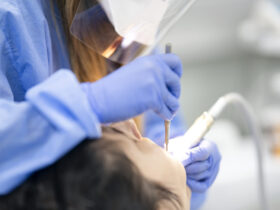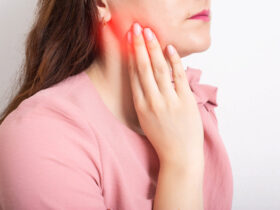Sleep apnea, a common sleep disorder characterized by interrupted breathing during sleep, affects millions worldwide. While continuous positive airway pressure (CPAP) therapy is the gold standard, dentistry offers alternative solutions for those who find CPAP uncomfortable or ineffective.
Patients affected with sleep apnea should know how dentistry plays a vital role in managing sleep apnea. From oral appliance therapy to specialized treatments, dentists have the expertise to help patients find relief and enjoy restful nights. You can discover the innovative approaches, collaborative care, and customized treatments that dentistry brings by consulting dental care in Salina, KS.
Significance of dentistry in helping patients affected with sleep apnea:
- Oral appliance therapy
Dentistry offers oral appliance therapy as a valuable treatment option for sleep apnea. These custom-fitted devices, worn during sleep, help reposition the jaw and tongue, keeping the airway open and reducing breathing disruptions. Oral appliances are comfortable, non-invasive, and portable, offering a convenient alternative to continuous positive airway pressure (CPAP) therapy. Dentists specialize in fitting and adjusting these appliances to ensure maximum effectiveness and patient comfort, providing an effective solution for improved sleep and overall well-being for individuals with sleep apnea.
- Collaborative approach
A collaborative approach is a hallmark of dentistry’s role in addressing sleep apnea. Dentists work closely with sleep physicians and specialists to diagnose and develop comprehensive treatment plans. This interdisciplinary collaboration ensures that patients receive integrated care, combining expertise from multiple fields. By pooling their knowledge and resources, these healthcare professionals create tailored solutions and provide holistic support for individuals with sleep apnea, leading to more effective treatment outcomes and improved overall sleep health.
- Customized treatment plans
Dentistry excels in providing customized treatment plans for sleep apnea. Dentists assess individual factors such as the severity of the condition, jaw structure, and oral health to create tailored solutions. Whether it’s recommending the most suitable oral appliance or combining therapies, personalized plans ensure optimal outcomes. By addressing each patient’s unique needs, dentistry is crucial in helping individuals with sleep apnea find effective and customized treatments for better sleep quality.
- Regular monitoring and adjustments
Regular monitoring and adjustments are vital to dentistry’s role in managing sleep apnea. Dentists provide ongoing care, closely monitoring the effectiveness of oral appliances. They conduct follow-up appointments to assess the device’s fit and make necessary adjustments for optimal results. This proactive approach ensures that patients receive continuous support, allowing dentists to fine-tune the treatment and address emerging issues.
- Alternative to CPAP
Dentistry offers a viable alternative to continuous positive airway pressure (CPAP) therapy for sleep apnea. Oral appliances, custom-fitted by dentists, can effectively treat mild to moderate cases. Such instruments are comfortable to wear and function by moving the jaw and tongue to open the airway when sleeping. Oral appliances provide a practical and effective treatment solution for individuals who struggle with CPAP or prefer a non-invasive option, promoting better sleep quality and overall well-being.












